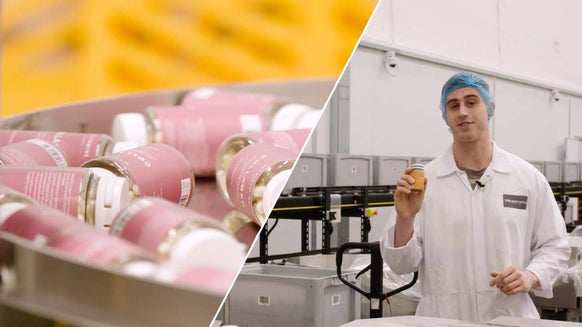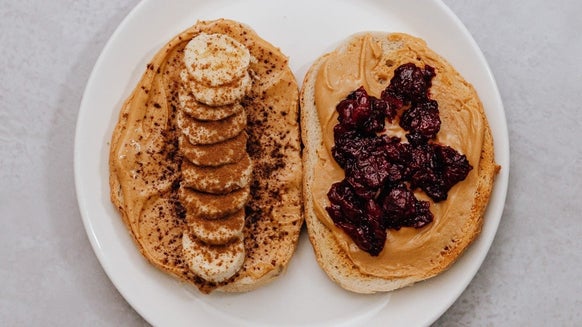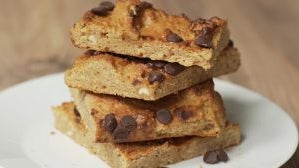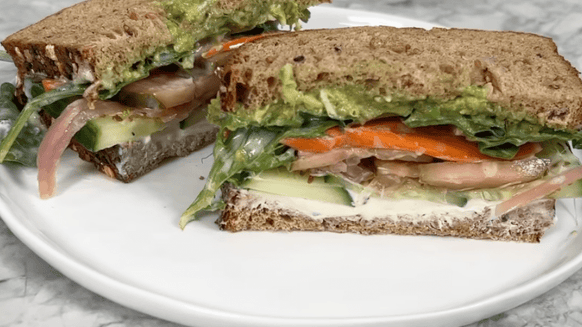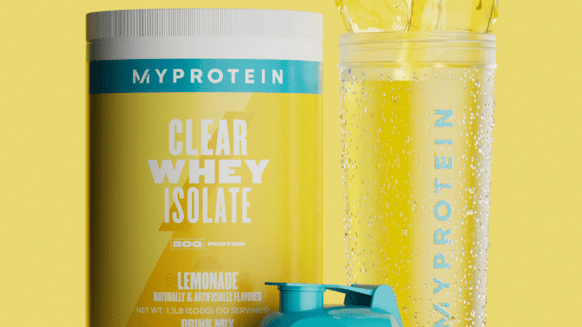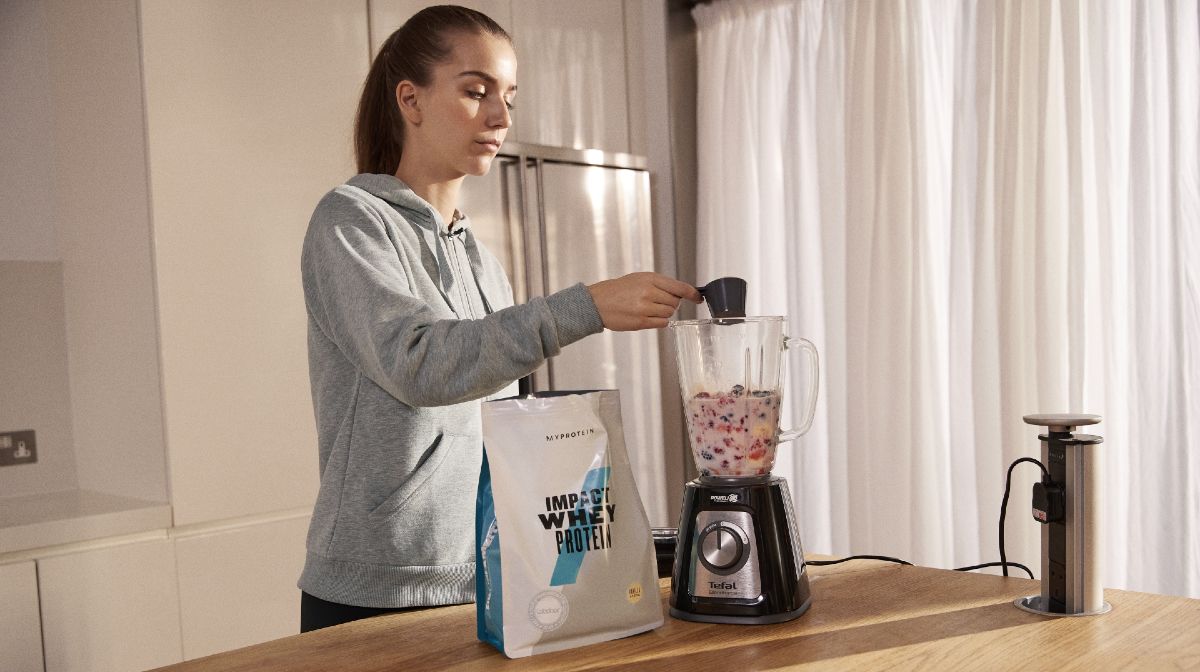
It's a commonly asked question among those cutting and trying to drop body fat – should I drink protein shakes while cutting and what would be the best protein for cutting? This article should give you a little bit of guidance, and some answers to your questions.
- Calories In vs. Calories Out
- Protein & Shakes
- Benefits
- Which is the best protein for cutting?
- What about calorie restriction?
Calories In vs. Calories Out
When it comes to losing weight, it's as simple as calories in vs. calories out. When you expend more calories than you consume, you will be in a negative energy balance or a calorie deficit. This means your body has to use stored energy (fats and carbohydrates) to function, which will result in weight loss.
Whilst there may be a number of factors that will dictate whether you are in a negative energy balance, in essence, it's almost as simple as needing to do more and eat less.
In order to maintain your physique, strength and resting metabolism it’s important to make sure that it’s body fat lost during a cut and not muscle mass. To do this it is important to get your protein right. And that’s where we come in.
Protein and Shakes
Protein is a really important macronutrient for body composition and it’s especially important during a weight cut. When losing body mass, it is typical that some muscle mass will be lost as well as fat mass.
In order to reduce the muscle mass lost during a weight cut it is important to keep protein intake high.2 To maintain muscle mass, your rate of muscle protein synthesis should be equal to, or ideally, exceed muscle protein breakdown.
In order to increase muscle protein synthesis, you need to consume a protein source rich in amino acids. This can come from high protein foods such as meat, fish, and dairy. However, certain protein sources will also contain additional calories.
In comparison to certain meats, protein shakes can be low in calories and if following a strict, energy restricted diet plan, a protein shake can provide a high dose of protein for as little as 100kcals.
Benefits
Increases Total Daily Protein Intake
Supplementing with protein shakes is a convenient way of increasing total daily protein intake. This can lead to an increase in muscle protein synthesis and decrease in protein breakdown. Because of this, a higher net protein balance is achieved, helping to promote gains in lean muscle mass, strength and recovery.
Evidence has shown that while in an energy deficit, 2.4g/kg/d is more effective than 1.2g/kg/d for preserving lean muscle mass.2 Therefore, by supplementing with a protein shake you can increase your daily protein intake and reduce muscle protein breakdown. This will make it more likely that fat is lost during the cut rather than muscle mass.2
Protein Helps You Feel Fuller for Longer
Consuming protein will help you feel fuller for longer making it easier to resist snacks that will reduce your overall calorie deficit. Despite having a high impact on satiety, a typical shake (containing 25-30g of protein) will also be low in calories.
When cutting, this makes them a great snacking option as other protein sources will typically contain more than this. For example, it would require 5 boiled eggs to hit 30g of protein but you will be consuming three times the number of calories.
Other Protein Benefits
Protein has a high thermic effect of feeding (TEF) than carbs or protein. This means that you need more calories to burn protein than you do carbohydrates and fat. TEF only plays a minor role in metabolism, however, every little helps when it comes to reaching your body transformation goals sooner.
Protein also keeps you feeling fuller for longer if 30g or more is used in one sitting. The typical protein shake has around 25-30g of protein per serving and for only around 100 calories. You'd have to eat around say 5 boiled eggs to hit 30g of protein, but you'd also be having way more calories! Three times the calories in fact!
Which is the best protein for cutting?
Whey with no added carbohydrates
Protein shakes without added carbohydrates, such as our Impact Whey, will help ensure you are getting a protein hit whilst staying in a calorie deficit.
Carbohydrates contain 4kcals per gram so having a shake with added carbs is more suitable for those looking to gain weight due to the increased calorie content.
Casein
Casein is as low releasing protein with evidence to show it can reduce muscle protein breakdown.3 This can be particularly helpful if you are in a calorie deficit as it may reduce the risk of losing muscle mass.
Due to its slow releasing nature, casein also makes for a good evening snack and there is evidence to show supplementing casein before bed can improve body composition (lost fat and gain/maintain muscle mass) as it has been shown to increase resting metabolic rate in the morning.4
Protein blends
Protein blends containing whey and casein may help to give you the best of both worlds. The theory is that whey protein will help to raise muscle protein synthesis quickly and the casein will help to sustain an increased rate of muscle protein synthesis.
It has been suggested that this may help build more muscle mass in the long term.5
What About Calorie Restriction?
Shedding body fat whilst maintaining muscle mass requires an energy deficit and a high protein intake. Therefore, the more low-calorie protein sources you can include in your diet the better. A protein shake is a great example of this as they tend to be low in both fat and carbohydrates. This means whichever dietary approach you follow (low carb, low fat, or a mix of both), protein shakes can be utilized to great effect.
A typical protein shake will usually contain around 25-30g for approximately 100kcals which makes them a great way to boost your daily protein intake whilst keeping the calories down.
Take Home Message
Supplementing protein shakes will increase your daily protein intake which will help preserve muscle mass while cutting body fat. The most important factor when cutting is to be in a negative energy balance and the impact that protein has on satiety can make it easier to follow an energy restricted diet plan.
The best protein shakes to use when cutting are ones without added carbohydrates as this will help keep the calorie content down. Casein before bed has also been shown to improve body composition due to its impact on resting metabolic rate in the morning.
READ THESE NEXT:

Does Creatine Make You Gain Weight?
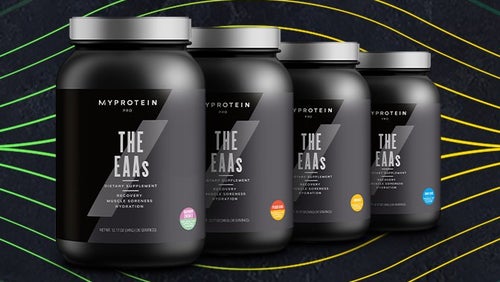
Everything You Should Know About EAAs – Are They Superior to BCAAs?
Here, we see how BCAAs stack up to EAAs....

Liam is a certified sport nutritionist with the International Society of Sport Nutrition and is enrolled on the British Dietetics Association’s Sport and Exercise Nutrition register. He has a Bachelor’s of Science in Sport and Exercise Science and is graduate of the ISSN Diploma in Applied Sport and Exercise Nutrition.
Liam is an experienced personal trainer, helping clients reach their health and fitness goals with practical, evidence informed exercise and nutrition advice.
In his spare time Liam has competed in numerous powerlifting competitions and enjoys hill walking, football and expanding his recipe repertoire in the kitchen. Find out more about Liam's experience here.
- Aragon, A.A., Schoenfeld, B.J., Wildman, R. et al. International society of sports nutrition position stand: diets and body composition. J Int Soc Sports Nutr 14, 16 (2017). https://doi.org/10.1186/s12970-017-0174-y
- Thomas M Longland, Sara Y Oikawa, Cameron J Mitchell, Michaela C Devries, Stuart M Phillips, Higher compared with lower dietary protein during an energy deficit combined with intense exercise promotes greater lean mass gain and fat mass loss: a randomized trial, The American Journal of Clinical Nutrition, Volume 103, Issue 3, March 2016, Pages 738–746
- Boirie Y, Dangin M, Gachon P, Vasson MP, Maubois JL, Beaufre`re B (1997). Slow and fast dietary proteins differently modulate postprandial protein accretion. Proc Natl Acad Sci USA. 94:14930–14935, 1997.
- Madzima TA, Melanson JT, Black JR, Nepocatych S. Pre-Sleep Consumption of Casein and Whey Protein: Effects on Morning Metabolism and Resistance Exercise Performance in Active Women. Nutrients. 2018;10(9):1273. Published 2018 Sep 10. doi:10.3390/nu10091273
- Paul LG. (2009). The Rationale for Consuming Protein Blends in Sports Nutrition. The Journal of the American College of Nutrition. 2013. 28:sup4 464S-472S.



